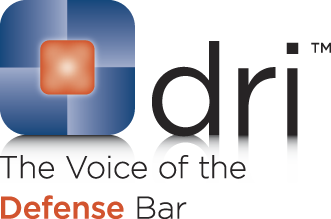 Following the California case of Howell v. Hamilton Meats & Provisions, Inc., 52 Cal. 4th 541, 257 P.3d 81, 128 CalRptr. 3d 658 (2011), the Nevada Law Blogs began wondering if Nevada would follow California’s lead and prohibit Plaintiff’s attorneys from introducing evidence of any medical bills that had been partially or totally forgiven by Plaintiff’s medical provider. Then came the Nevada case of Tri–County Equip. & Leasing, LLC v. Klinke, 128 Nev. Adv. Op. 33, 286 P.3d 593 (2012). We questioned whether this case would become the vehicle for the Nevada Supreme Court to adopt the Howell precedent and thereby prevent Plaintiffs from offering as evidence the amount of any medical bills that had been written down or forgiven.
Following the California case of Howell v. Hamilton Meats & Provisions, Inc., 52 Cal. 4th 541, 257 P.3d 81, 128 CalRptr. 3d 658 (2011), the Nevada Law Blogs began wondering if Nevada would follow California’s lead and prohibit Plaintiff’s attorneys from introducing evidence of any medical bills that had been partially or totally forgiven by Plaintiff’s medical provider. Then came the Nevada case of Tri–County Equip. & Leasing, LLC v. Klinke, 128 Nev. Adv. Op. 33, 286 P.3d 593 (2012). We questioned whether this case would become the vehicle for the Nevada Supreme Court to adopt the Howell precedent and thereby prevent Plaintiffs from offering as evidence the amount of any medical bills that had been written down or forgiven.
But the wholesale adoption of the Howell case was not to be. Instead, the Nevada Supreme Court, in a narrow legal ruling, kicked the can down the road. The Nevada Law Blogs felt that a final decision on the billed vs. paid question would have to wait for another day.
However, disagreeing with the Nevada Law Blog’s interpretation, Wal-Mart argued Tri-County was evidence that Nevada had adopted the Howell rule. In the case of McConnell v. Wal-Mart Stores, Inc., 995 F.Supp.2d 1164 (D. Nev., 2014), Wal-Mart argued that Tri-County Equipment case went far enough to demonstrate that Nevada had in fact adopted the Howell standard. Rejecting Wal-Mart’s argument, the court said:
A creditor’s forgiveness of debt—that is what a write-down in the present context amounts to—is often considered equivalent to payment in other contexts. . .In other words, a creditor’s partial forgiveness of a tort victim’s medical bills via a write-down is properly considered a third-party “payment,” evidence of which is barred by the collateral source rule. The Court rejects the Howell Court’s rationale that a write-down is not equivalent to forgiveness of debt because write-downs are prearranged between insurers and providers. See Howell v. Hamilton Meats & Provisions, 52 Cal.4th 541, 129 Cal.Rptr.3d 325, 257 P.3d 1130, 1138–39 (2011).
995 F.Supp.2d at 1170.
In other words, Proctor v. Castelletti, 112 Nev. 88, 911 P.2d 853 (1996) and its strict reading of the collateral source rule is still the law in Nevada as the Nevada Law Blogs had predicted.
The billed vs. paid challenge is but one of many ways to try and reduce recoverable damages based on the amount billed by a Plaintiff’s medical provider. For more ideas, feel free to contact Mike Mills at 702-240-6060×114.
 Follow
Follow Email
Email


